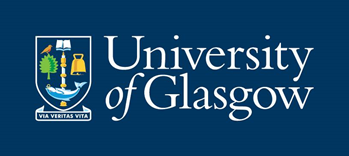Catches, canons and drinking songs
to your rude health,
About
To Your Rude Health is a collaborative project involving students (Joshua Stutter, Alasdair Robertson and Edward Marshall) and staff (Dr Katy Lavinia Cooper, Mr Neil McDermott) from the University of Glasgow. The music we have recorded is held in the University library’s Special Collections, and the songs were recorded in the University’s Humanity Lecture Theatre and Memorial Chapel. This project is a University of Glasgow project through and through with the hope to bring to life music in the University library that has previously been unfairly forgotten. We trust that this project will attract more interest in the excellent music holdings of the library and Special Collections, and inspire others to take on such projects using these resources.
These recordings, editions and commentary are intended to be useful to all those that study the music and culture of this period and provide a collaborative platform upon which to base further study and music–making. We know from our previous performances of this programme that the music, although hundreds of years old, is still extremely accessible and enjoyable for general audiences. Therefore, we aim for this musical resources to be used by amateur and professional musicians alike for continuing performance, thereby bringing the music of this somewhat forgotten repertory, once a common music heard in inns and taverns, to a wide publich audience. In February 2019, we gave a free performance of the programme of songs in Special Collections with the sources available for viewing, which around 40 people attended, including students, staff, as well as members of the public. In this way, we have already seen the potential impact that this project can provide.
Euing Collection
The Euing collection contains over 2,500 volumes of early printed music, including 7 incunabula. The collection’s musical treasures include manuscripts of two medieval liturgical works, an early 17th century lute book, a set of part-books belonging to the publisher John Playford, and biographical documents and letters sent to John Sainsbury for use in his Dictionary of musicians which appeared in 1824. Published music includes contemporary editions of works by Byrd, Purcell, Gibbons, Lully, Marenzio, Couperin, Frescobaldi and many others, while among the theoretical works are several rare items, such as Thomas Morley’s Plaine and easie introduction to practicall musicke (1597) and Thomas Mace’s Musick’s monument (1676).
(Taken from the University of Glasgow website, where can be found more information about the collection as well as a detailed breakdown of its holdings.)
Chancellor’s Fund
Recording To Your Rude Health, digitising the sources and developing this web resource has been generously funded by the University of Glasgow’s Chancellor’s Fund. This project would simply not have been possible without this support and we are deeply grateful.
Iuchair
Iuchair is an early music vocal ensemble based in Glasgow, brought together by a shared interest in early music, particularly that of neglected, unusual and seldom–performed repertories. Always performing from bespoke editions, Iuchair put particular emphasis on bringing performance of early music up to date with current academic thinking by dispelling myths of early music performance. From our foundation in September 2017, we have considered foremost how the music is best performed in the modern day against current conceptions of how Medieval music “should” sound, especially in terms of pitch, tuning and tempo. The three projects that we have worked on so far are Perotin: the Scottish Source - 13th Century polyphony from W1 (St Andrews), To your rude health / Sacred and Profane: 17th Century Catches and Drinking Songs from sources held in the Euing collection at the University of Glasgow, Special Collections, and Passio: music for Holy Week by the gentlemen of the Chapel Royal.
How to Cite
Stutter, J., Marshall, E., Robertson, A., Cooper, K., McDermott, N., & Campbell, H. (2021). “To Your Rude Health!”.
Credits
- Recordings by Iuchair: Edward Marshall, Alasdair Robertson, Joshua Stutter
- Producers: Katy Lavinia Cooper & Neil McDermott
- Engineer: Neil McDermott
- Facsimiles: Edward Marshall & Harry Campbell
- Website Design: Joshua Stutter
- All images of books reproduced courtesy of University of Glasgow Archives & Special Collections
Special Thanks
- Julie Gardham and the whole Special Collections team for supporting the project
- Dr Tim Duguid for his RDF advice
